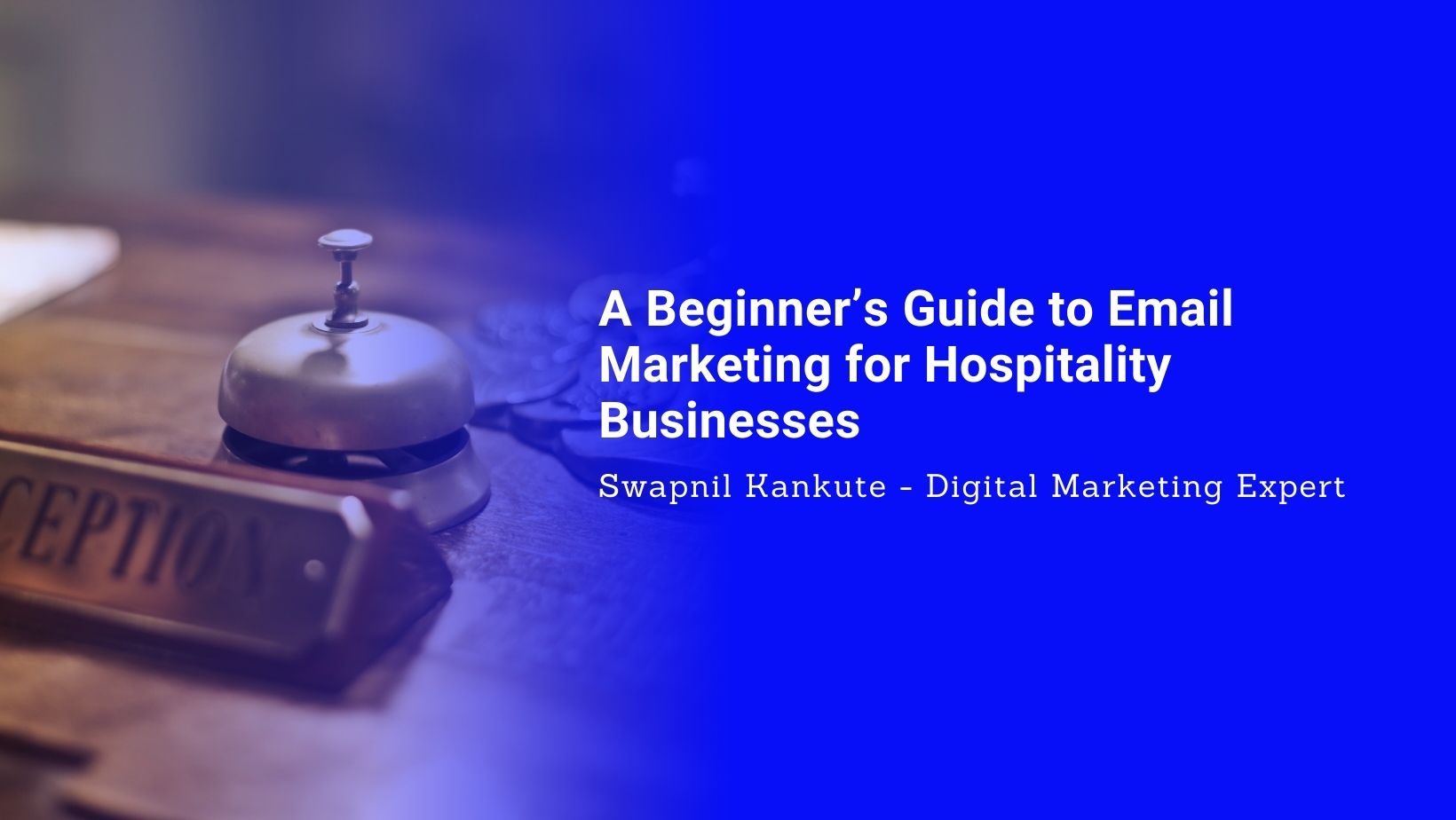In today’s digital age, email marketing remains one of the most effective tools for hospitality businesses to connect with customers, enhance guest experiences, and drive revenue. Whether you own a hotel, restaurant, or resort, understanding how to leverage email marketing can significantly benefit your business. This beginner’s guide will provide you with essential insights into email marketing strategies tailored for the hospitality industry.
Table of Contents
ToggleWhat is Email Marketing?
Email marketing involves sending targeted messages to a group of individuals via email to promote products, services, or events. For hospitality businesses, email marketing serves as a direct line of communication with past, present, and potential guests, allowing for personalized engagement and relationship building.
Why is Email Marketing Important for Hospitality Businesses?
- Direct Communication: Email allows you to communicate directly with your audience, providing valuable information, promotions, and updates straight to their inbox.
- Cost-Effective: Compared to traditional marketing methods, email marketing is relatively inexpensive, making it accessible for businesses of all sizes.
- High ROI: According to studies, email marketing offers a high return on investment (ROI), making it one of the most effective digital marketing strategies.
- Personalization: Email marketing allows for personalized content tailored to individual guest preferences, enhancing their experience and increasing the likelihood of bookings.
Getting Started with Email Marketing
1. Build Your Email List
The foundation of a successful email marketing campaign is a robust email list. Start building your list by:
- Offering Incentives: Provide incentives such as discounts, free Wi-Fi, or exclusive offers to encourage guests to sign up for your newsletter.
- Utilizing Sign-Up Forms: Place sign-up forms on your website, social media profiles, and at your physical location. Ensure the process is simple and user-friendly.
- Collecting Emails During Bookings: Always ask for an email address during the booking process. This allows you to follow up with guests after their stay.
2. Choose an Email Marketing Platform
Select an email marketing platform that suits your business needs. Popular options include Mailchimp, Constant Contact, and SendinBlue. Look for features such as:
- User-Friendly Interface: Choose a platform that is easy to navigate, especially if you’re new to email marketing.
- Template Options: Look for customizable templates to create visually appealing emails without needing extensive design skills.
- Analytics and Reporting: Ensure the platform provides insights into your campaigns’ performance, including open rates, click-through rates, and conversions.
3. Segment Your Audience
Segmentation allows you to divide your email list into smaller groups based on specific criteria, such as:
- Demographics: Group by age, location, or other demographics to tailor your messages.
- Guest Behavior: Segment based on past bookings, frequency of visits, or preferences (e.g., business vs. leisure travelers).
- Engagement Levels: Differentiate between active subscribers and those who haven’t engaged recently to tailor your approach.
4. Craft Compelling Content
The success of your email marketing campaigns hinges on the quality of your content. Keep the following tips in mind:
- Catchy Subject Lines: Create attention-grabbing subject lines that entice recipients to open your emails. Keep them concise and relevant.
- Personalization: Use the recipient’s name and tailor content to their preferences. Personalized emails have higher open and click-through rates.
- Engaging Visuals: Incorporate high-quality images of your hotel, restaurant, or offerings to captivate your audience. Ensure your emails are visually appealing and easy to read.
- Clear Calls to Action (CTAs): Include prominent CTAs that guide recipients on what to do next, whether it’s booking a room, making a reservation, or checking out a special offer.
5. Timing and Frequency
Finding the right timing and frequency for your emails is crucial. Consider the following:
- Frequency: Avoid overwhelming your subscribers with too many emails. Aim for a balance; a monthly newsletter might be sufficient for most hospitality businesses.
- Timing: Experiment with different send times to find when your audience is most likely to engage. Many businesses find success with emails sent mid-week.
Types of Emails to Send
1. Welcome Emails
Send a warm welcome email to new subscribers, introducing your hospitality business and highlighting the benefits of being on your mailing list. Include a special offer to encourage bookings.
2. Promotional Emails
Promote special offers, discounts, or seasonal packages through targeted promotional emails. Ensure these emails are visually appealing and provide clear CTAs.
3. Event Announcements
If you’re hosting events, such as wine tastings, live music, or culinary classes, send out announcements to invite guests and encourage attendance.
4. Post-Stay Follow-Up
After a guest’s stay, send a follow-up email thanking them for their visit. Include a feedback survey to gather insights and encourage future bookings with a special offer.
5. Newsletters
Regular newsletters can keep your audience informed about upcoming events, new menu items, or recent renovations. This helps maintain engagement and brand loyalty.
Analyzing Your Email Marketing Performance
To understand the effectiveness of your email marketing campaigns, regularly review your analytics. Key metrics to track include:
- Open Rates: The percentage of recipients who opened your email. Aim for a rate above 20% for hospitality businesses.
- Click-Through Rates (CTR): The percentage of recipients who clicked on a link within your email. A higher CTR indicates engaging content.
- Conversion Rates: Track how many email recipients took the desired action, such as booking a room or making a reservation.
- Unsubscribe Rates: Monitor how many subscribers opt out of your emails. A high rate may indicate that your content isn’t resonating with your audience.
Conclusion
Email marketing is an invaluable tool for hospitality businesses looking to engage with customers, promote services, and drive revenue. By building a quality email list, crafting compelling content, and analyzing performance metrics, hospitality professionals can harness the power of email marketing to enhance guest experiences and boost bookings.
As a certified digital marketing expert with over 12 years of experience, I encourage hospitality businesses to embrace email marketing as part of their overall strategy. With the right approach, email marketing can lead to significant growth and success in the hospitality industry.



